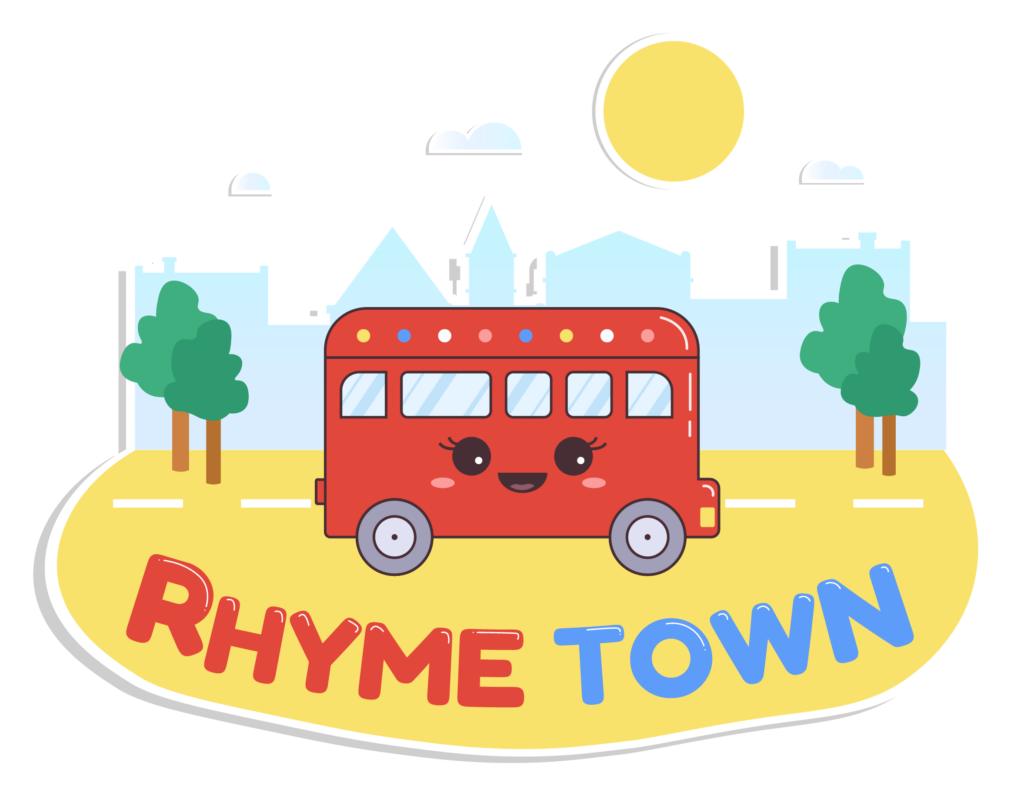These are unprecedented times and with school closures happening today in the UK, following school closures in Ireland and other countries, parents are naturally asking how they will ensure learning at home whilst schools are closed due to Covid-19.
It’s very easy to become quickly overwhelmed as there is a lot of information flying about and lots of posts about homeschooling on social media, but first and foremost cut yourself some slack. Nothing terrible is going to happen if you don’t have your child learning all day every day, in fact, they probably only need a few hours every day just to keep things ticking over. If you’re home working it will make learning even more difficult to implement. Go easy on yourself, these times are hard enough as it is and emotions are running high.
Most schools will of course be providing work for children to complete at home and will be in contact in some form or another throughout school closures, but this also gives families an opportunity to give children other learning opportunities that we don’t normally have time for, for example:
- learn how to boil an egg
- make a cup of tea
- change a bed
- mend a puncture
- weed a garden
- write a letter
- keep a diary of events for future generations
We’ve loads of other ideas here in our children’s home learning activity list.

For people who want a more structured approach, here are our top tips for home learning during Covid-19
How does homeschooling work?
Homeschooling, home education, learning at home – call it what you will, but it can work in a variety of ways. You can choose to have a structured day with a timetable, or be completely led by your child’s interests (or both!). It’s also worth pointing out that for people who home educate all the time, this is difficult for them too as they might spend time attending groups and enjoying learning outside the home in a way they can no longer do.
If you are going for a more structured approach, it might be worth doing English and Maths in the morning, when the brain is naturally more receptive to learning, and saving topic/other types of learning for the afternoon. With space in between for preparing lunch and eating together. We have created a useful home learning timetable that will help with this, I always find that writing things down in a plan is really useful, and makes me feel more in control (especially when things seem a bit out of control).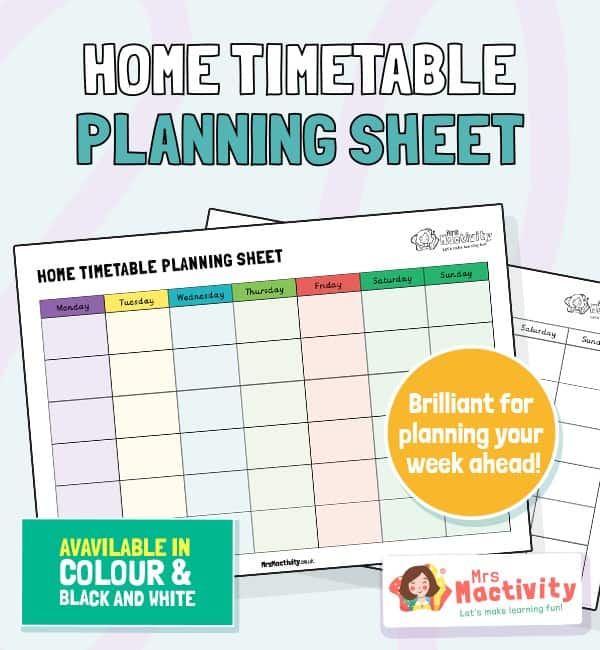
Maths Home Learning Ideas
I would start the day with some maths, and would perhaps work on a different skill each day. So for example on Monday you might want to work on addition, on Tuesday you could work on subtraction, Wednesday could be multiplication, Thursday you could work on division, and Friday on word problems combining all of the 4 operations. On each day you could work on mental maths, then go on to do written work, either using resources from websites like ours or from maths workbooks. It’s probably worth checking on your child’s school’s website to understand their calculation policy too, just in case you have to demonstrate something to your child. When they’ve finished, mark their work together, remembering to be really positive about what they’ve done well, and gently correcting any misconceptions. Alternatively you could do one week of addition/subtraction, one week of multiplication and one week of division – be led by your child’s needs. Try not to fall out!
Early Years Maths Home Learning
For children in Early Years and year 1, maths should take the shape of games and working on counting and number recognition. We’ve plenty of Early Years maths resources for helping with this.
You could start by getting out some play dough and asking children to make the number shapes, using our number formation mats.
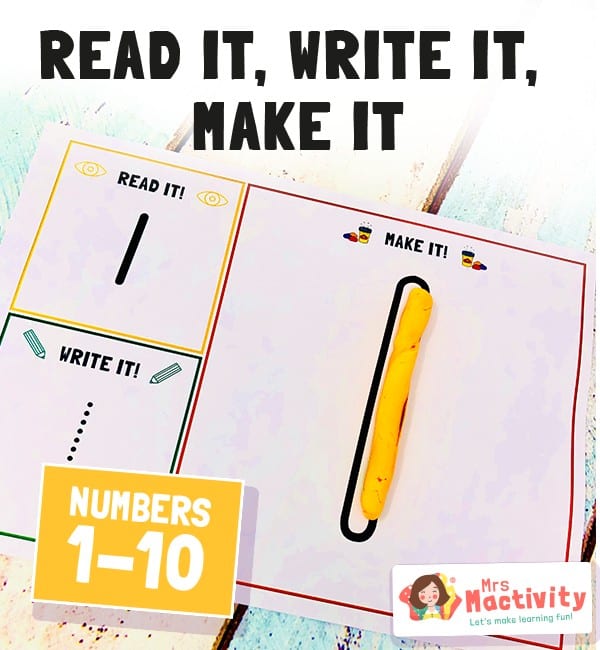
These number peg cards are brilliant for helping children to match up numbers with their words – this is useful for year 1 and 2 as well.
This counting to 100 activity is really useful and a nice one to warm children up too.
Play number car parks! Work on number bonds within 10 and 20 as this really speeds up overall mental maths skills. With this game, children have to park their car on the answer to the sum on their question card.

Don’t forget how useful every day maths is as well – for example singing songs like ‘1-2-3-4-5, once I caught a fish alive’, weighing and measuring ingredients, counting objects around the house ec.
It’s also vital to stay active – try counting how many star jumps you can all do, or how many shuttle runs you can do from one side of the garden to the other.
Key Stage One Maths Home Learning
For key stage one, we have prepared one long KS1 maths booklet that they could work through each day – we are currently working on the same for key stage two.

We also have loads of other maths activities and games that are a bit more hands on.
Our times table car parks are a great game for helping with times table recall skills.
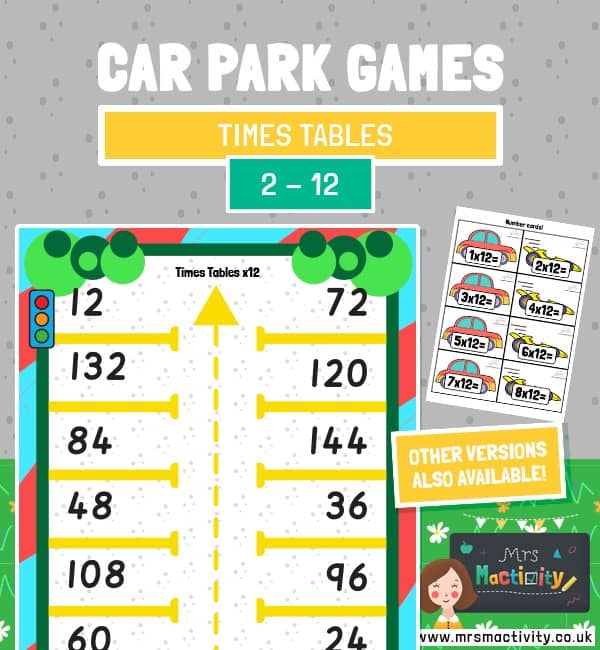
Money is something that children can often find quite difficult to get their heads around, these money challenge cards can be used over and over again as useful word problems.

Helping children read the time is also an important life skill, so have a browse through our time resources, especially our Big Ben matching activity.
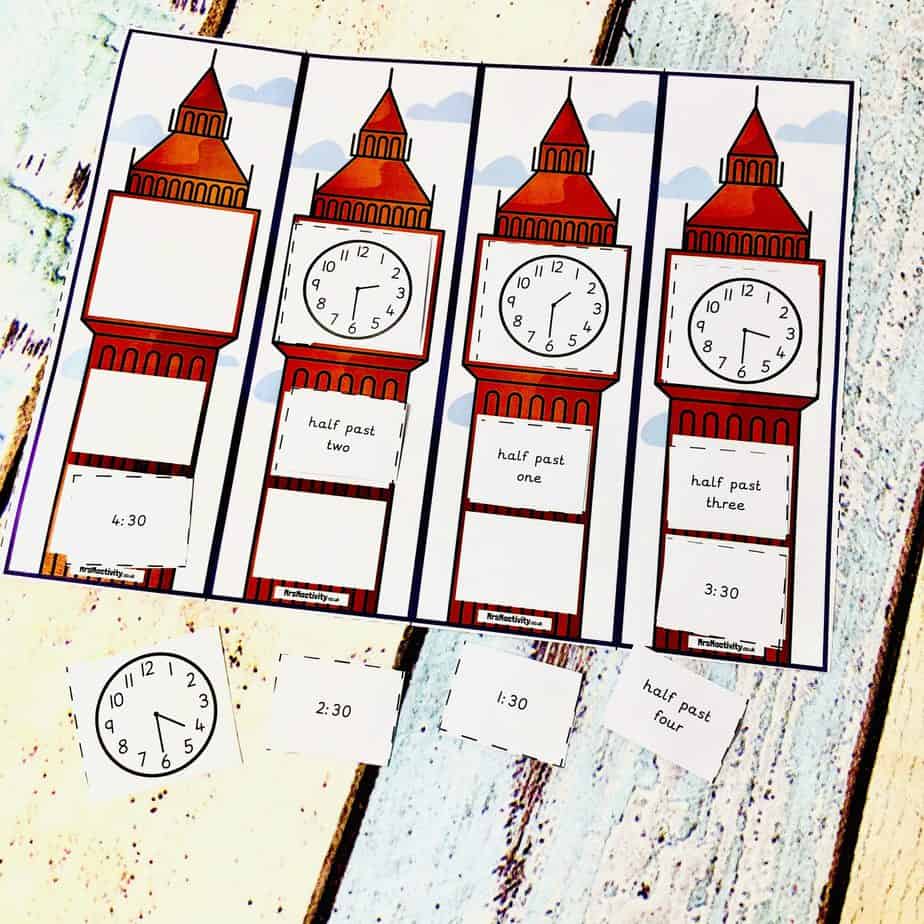
For Key Stage 2 children it’s definitely worth focusing on things like times table recall skills – our times table speedy recall test can help with that. We also have our multiplication wheels that are a brilliant tool for helping children improve.

Look our for our KS2 maths activity booklets coming soon.
English Home Learning Ideas
Reading is going to be a big one here, read every single day. Encourage your child to read a book a day, either together or independently. Then they could do a book review, or complete a home reading challenge book, just to keep a record of what they’ve done.
Aside from reading, there are loads of other things your child can do for example:
- write a letter to a friend.
- write an email to a friend
- keep a diary of each day, what is happening and how they are feeling
- make a shopping list
- write a postcard
If they need a bit more inspiration however, we have some writing prompts that all ages can use.

This is actually a really good opportunity to practice handwriting as well as spellings, and children can start with our letter formation sheets…

Before moving onto common exception word practice.
If your child is still working through the phonics phases, we have loads of resources for this, but are currently working on some phonics booklets – watch this space! Practising high frequency words is always useful, and you could print these out and pop them on a binder ring if you have one, to refer to regularly.
Home Learning Topic work
You could decide that for your child, a more child-led approach would work better, and for this we have a wide variety of brain building activities that are more like projects. These have suggestions and prompts but are more about extending learning around something your child is already interested in.

We are also creating a series of lap books for children to really delve deep into a subject. Full instructions for these are provided on each resource.

We will continue updating this blog post as time goes on and we upload more resources, so do keep checking back. If you want to explore all of our home learning resources, including our Early Years, Ks1 and Ks2 home learning packs – take a look here.
